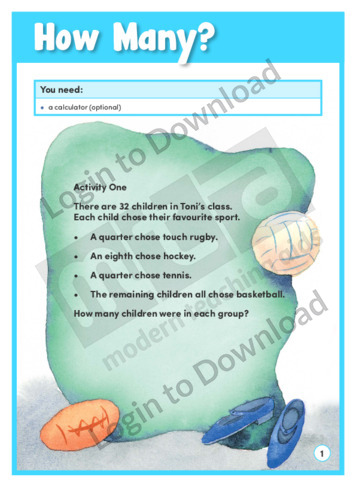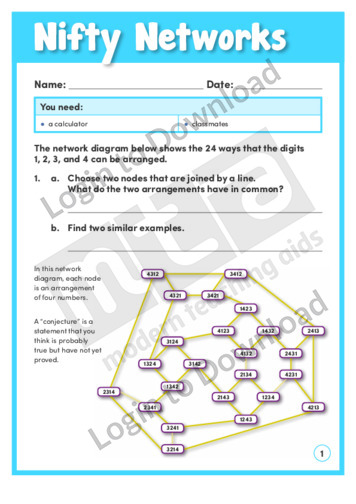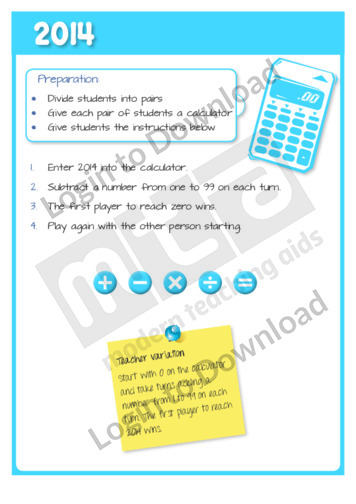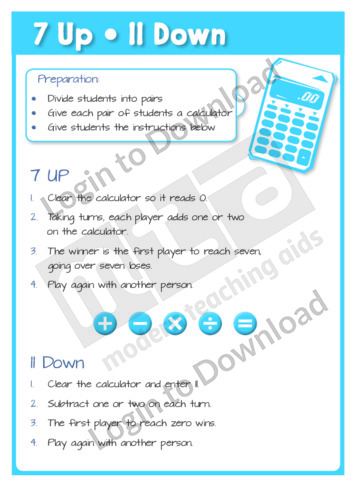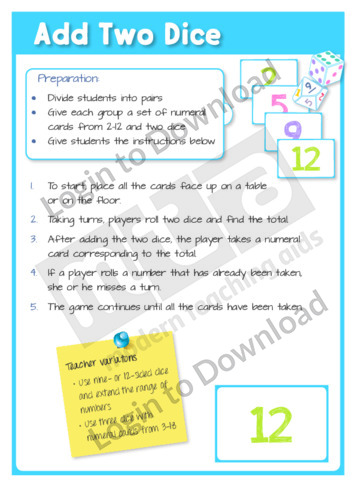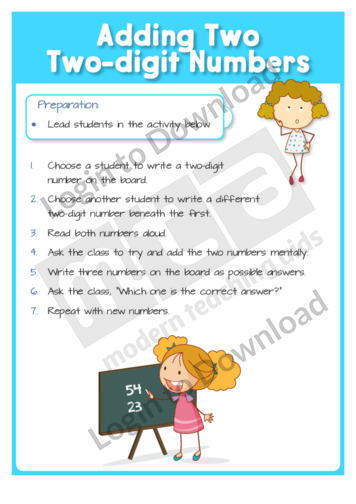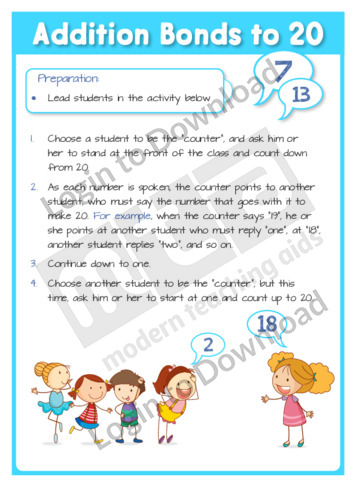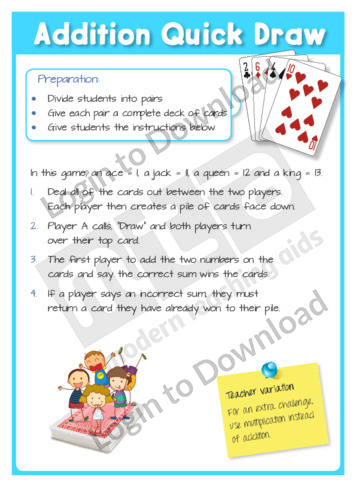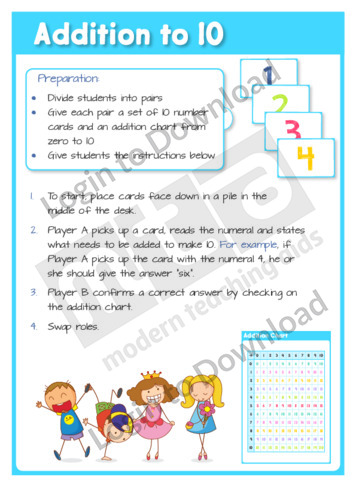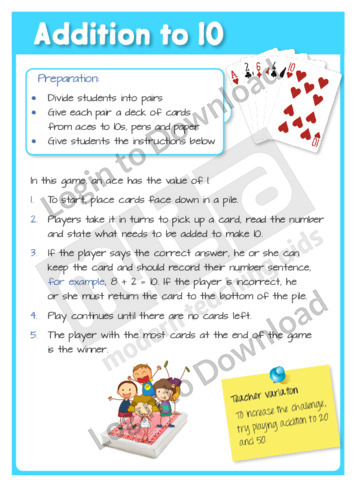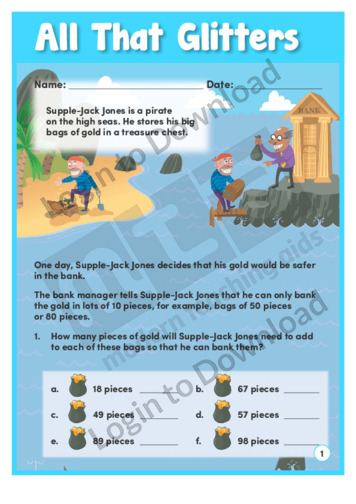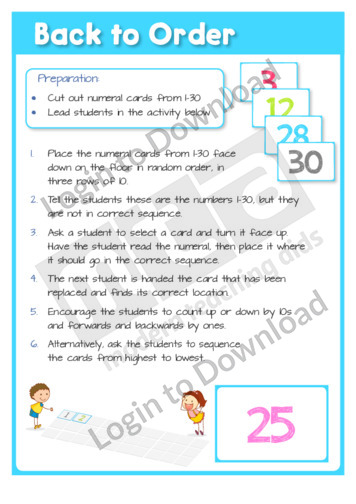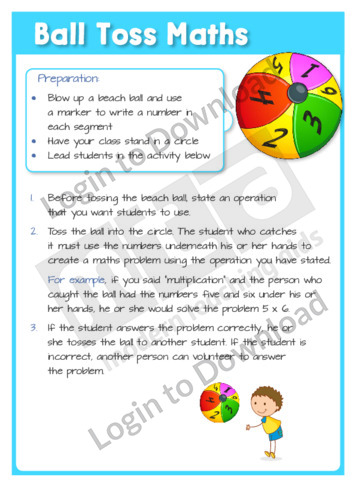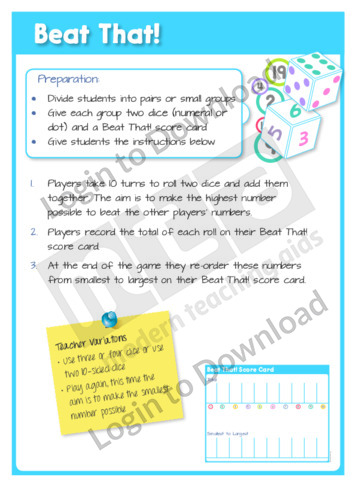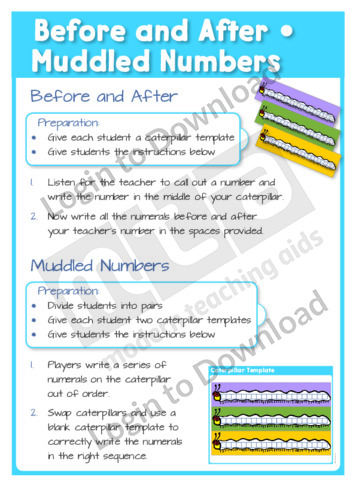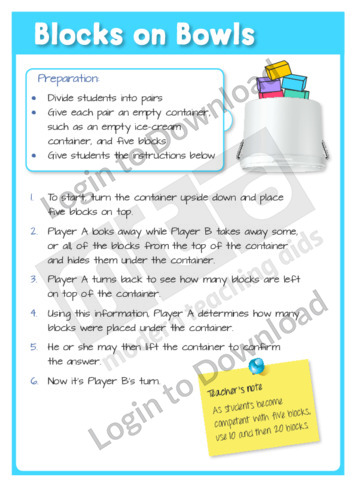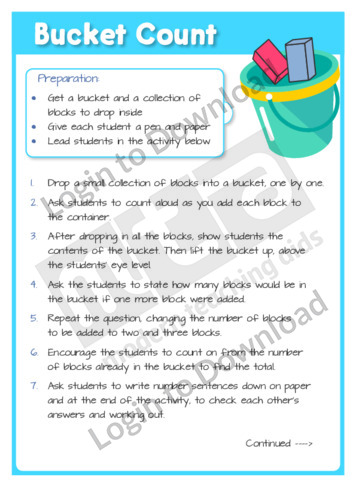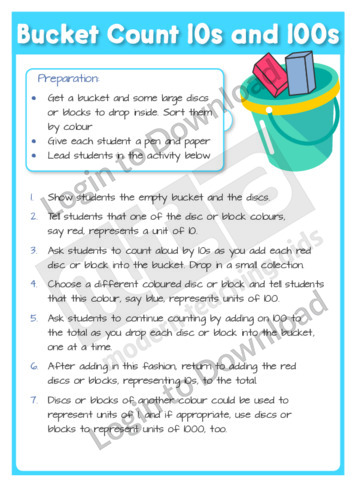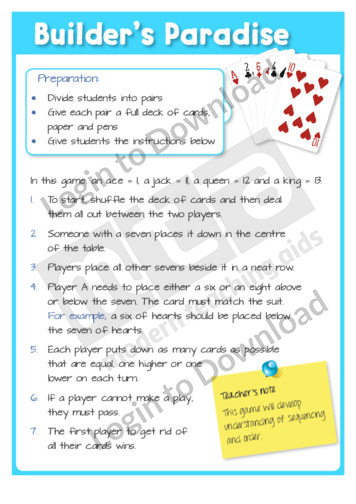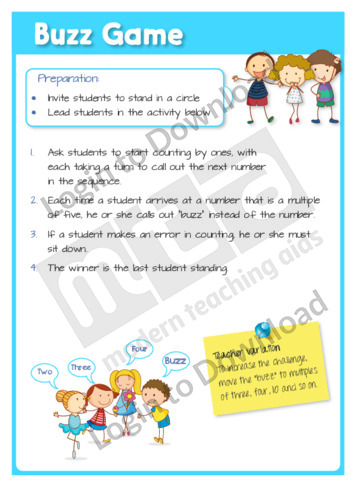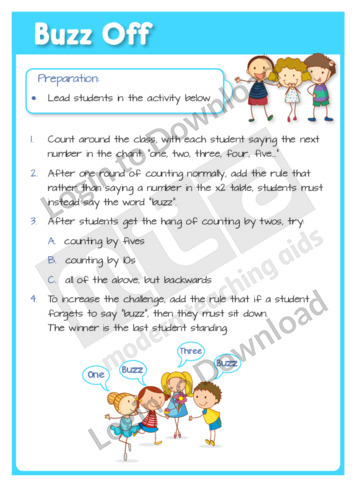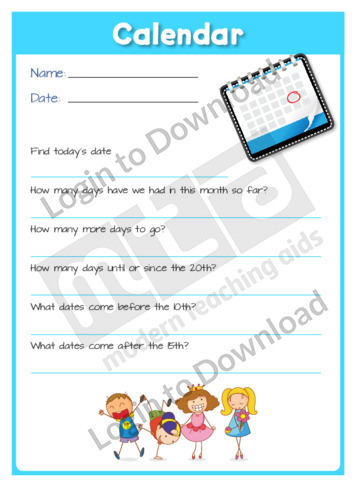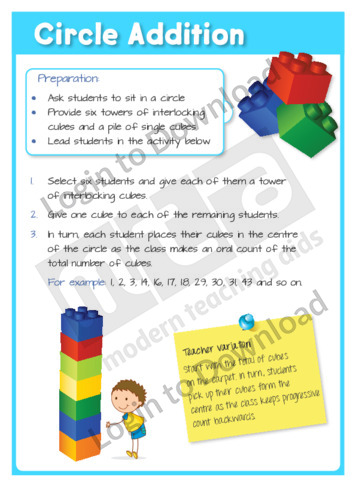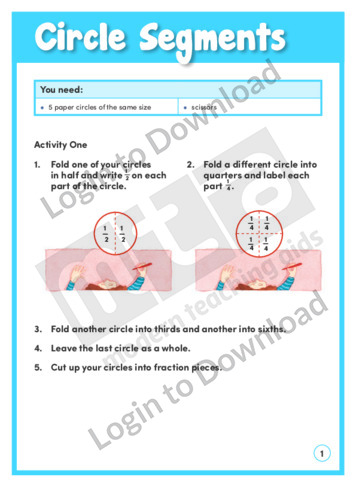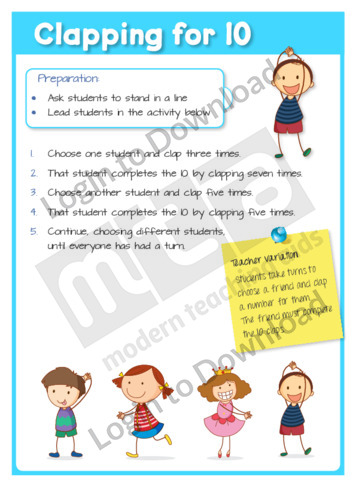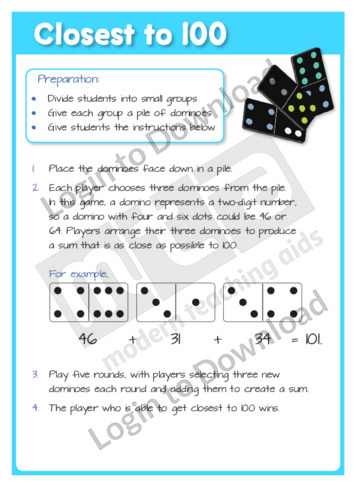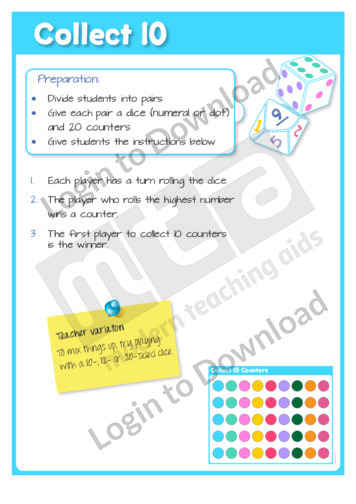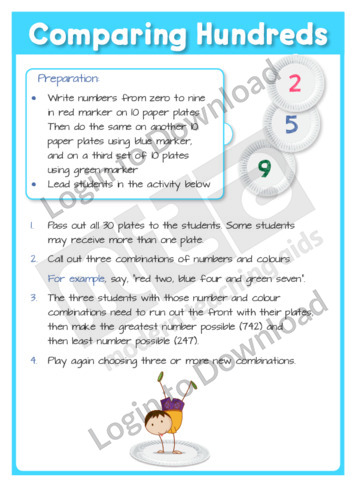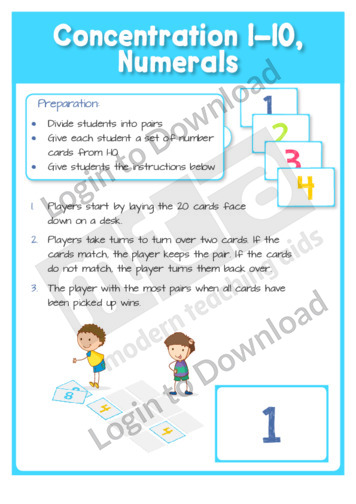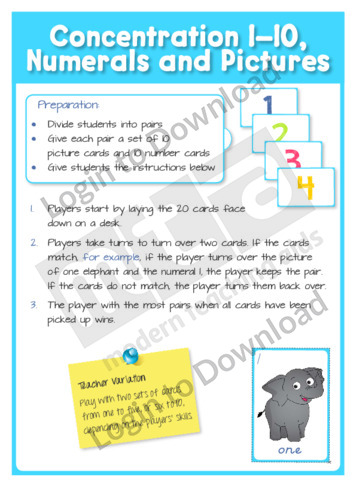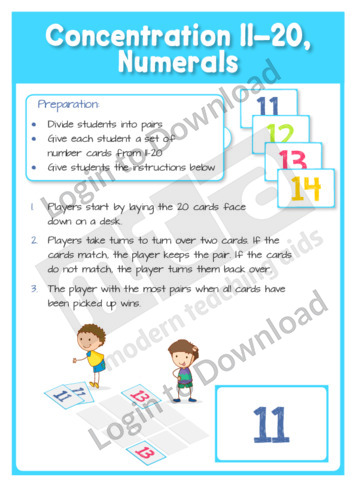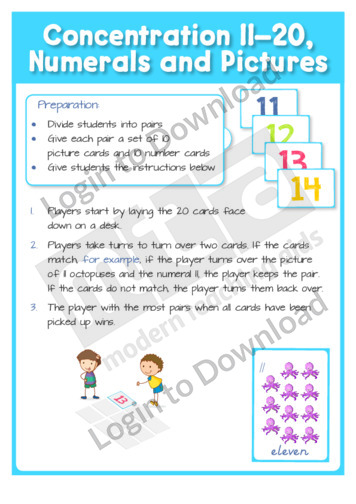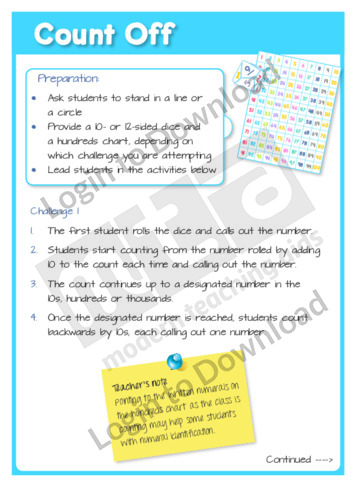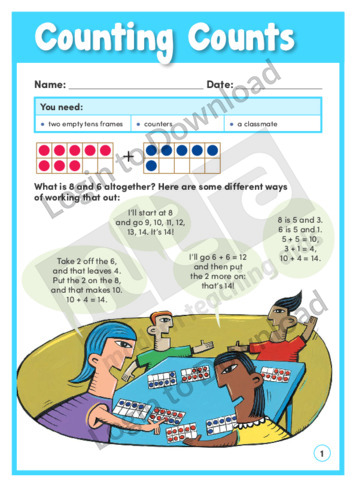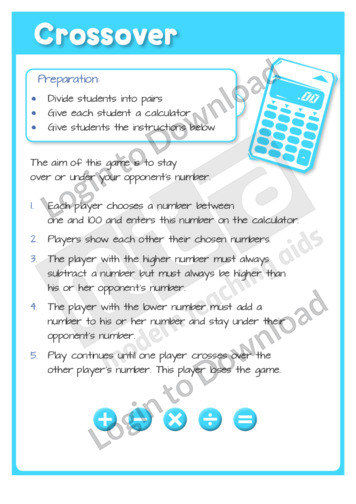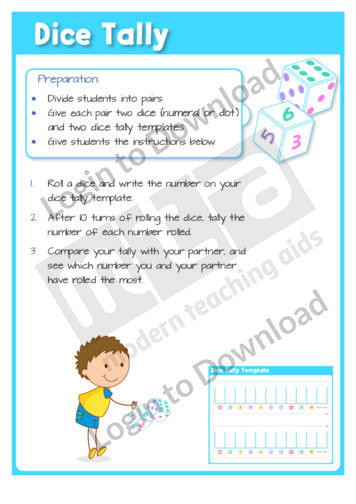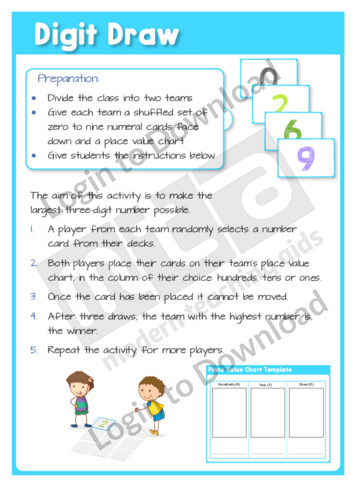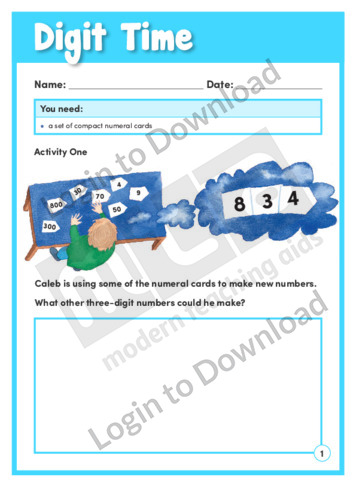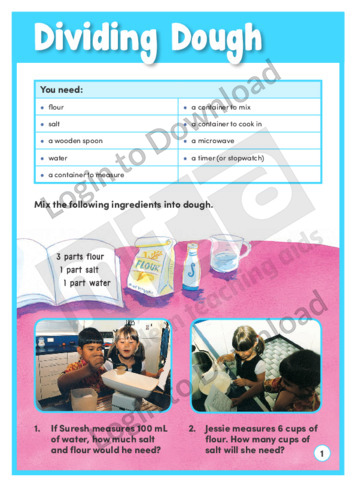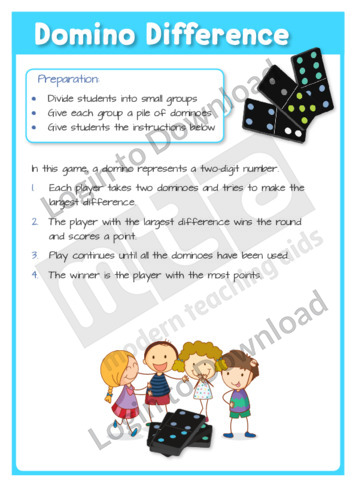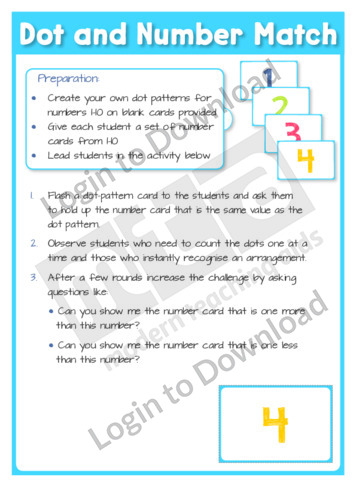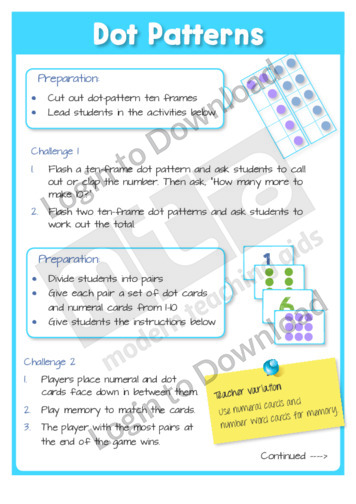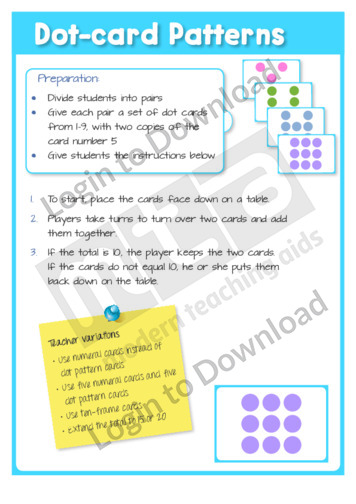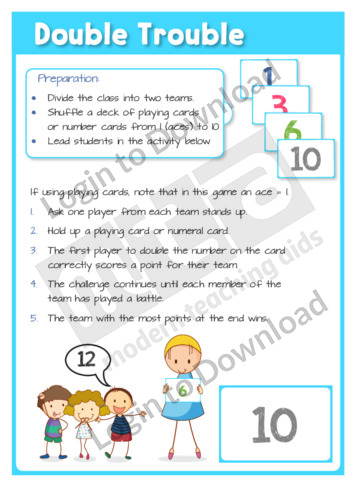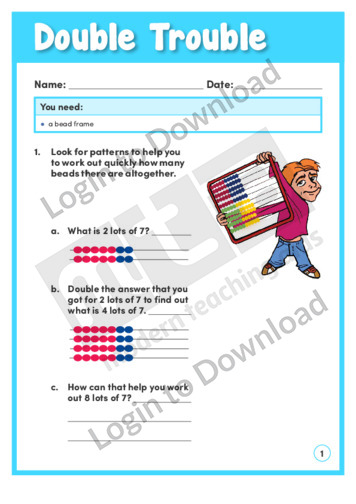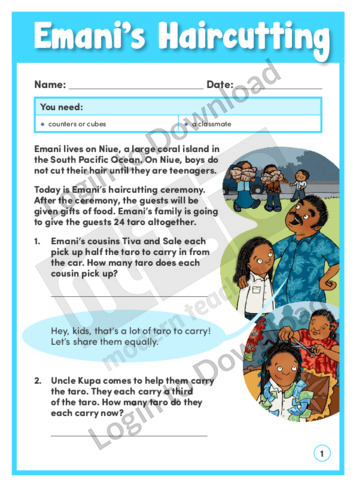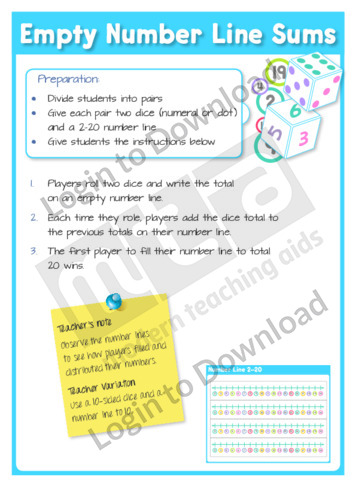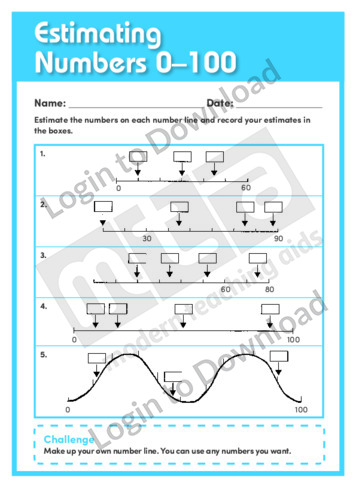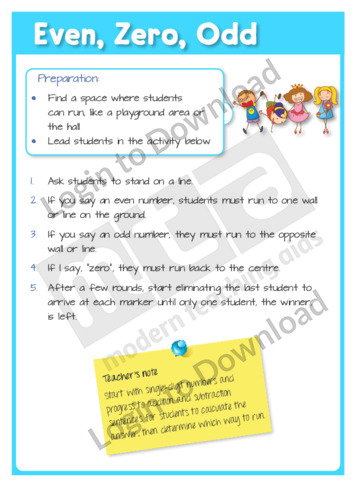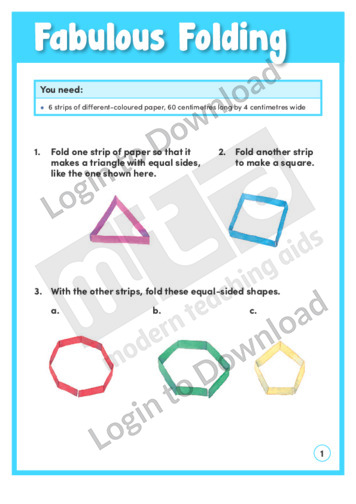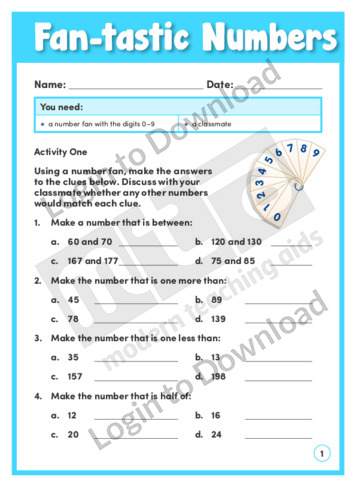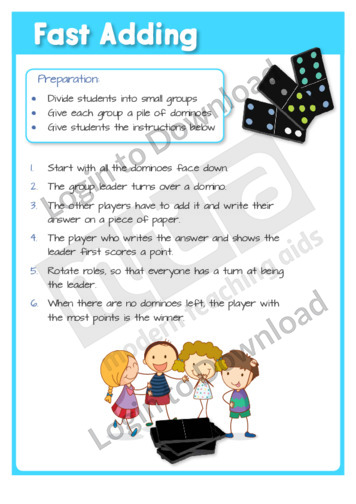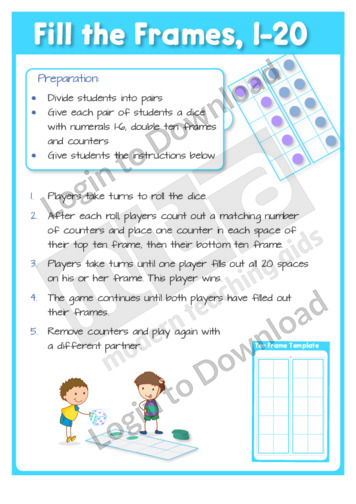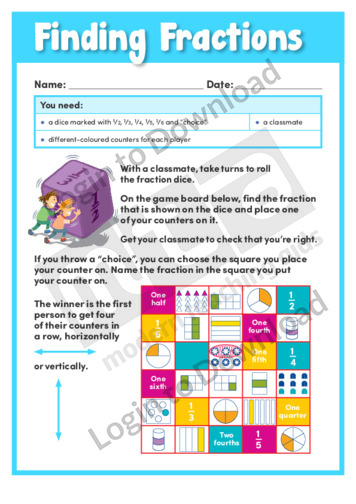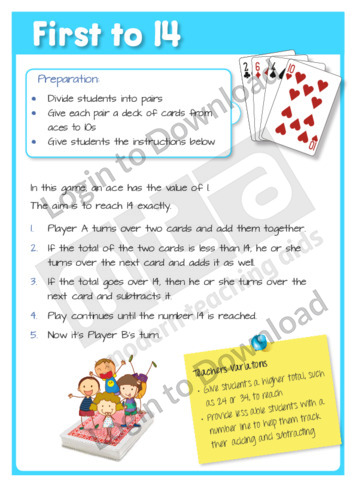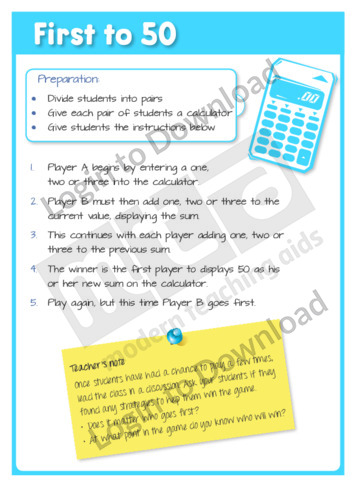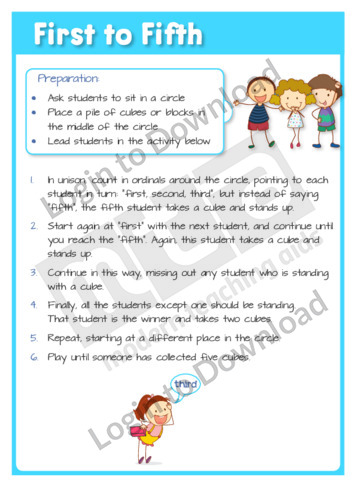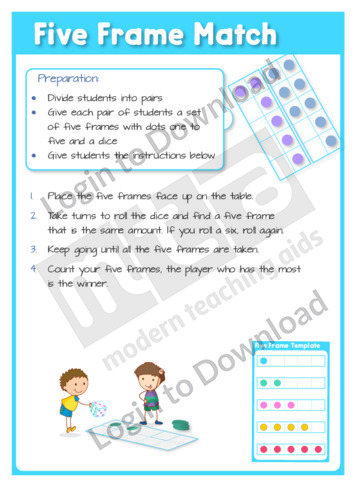Sports and swimming create number problems in this learning activity, ‘How Many?’. Students need to apply their knowledge of fractions to solve the problems. An answer sheet is provided and includes accompanying teaching notes with suggestions for supporting learning and further exploration.
The maths activity, ‘Nifty Networks’ shows how prime numbers and their factors can be arranged in a network. Students use their number knowledge to solve the network puzzle. This activity includes comprehensive teaching notes to be read before beginning the activity with students, as they feature useful background information and suggestions for supporting learning. An …More
The maths activity, ‘Prime Networks’ shows how prime numbers and their factors can be arranged in a network. Students use their number knowledge to solve the prime number puzzle, and to create a puzzle for a classmate. This activity includes comprehensive teaching notes to be read before beginning the activity with students, as they feature …More
This maths activity, ‘2014’ develops basic maths skills by encouraging students to practise subtraction as part of a game played in pairs with a calculator.
These maths activities, ‘7 Up’ and ’11 Down’ develop basic maths skills by encouraging students to practise addition and subtraction, as part of games played in pairs with a calculator.
This maths activity, ‘Add Two Dice’ develops basic maths skills by encouraging students to practise addition as part of a game played in pairs. It includes a set of number cards from 2-12 and a six-sided dot dice template to be distributed to each pair.
This maths activity, ‘Adding Two Two-digit Numbers’ develops basic maths skills by encouraging students to practise adding two two-digit numbers mentally.
This maths activity, ‘Addition Bonds to 20’ develops basic maths skills by encouraging students to practise addition as part of a game played as a class.
This maths activity, ‘Addition Quick Draw’ develops basic maths skills by encouraging students to practise addition as part of a game played in pairs with playing cards.
This maths activity, ‘Addition to 10’ develops basic maths skills by encouraging students to practise addition as part of a game played in pairs. It includes number cards from 1-10 and an addition chart to be distributed to each pair.
This maths activity, ‘Addition to 10’ develops basic maths skills by encouraging students to practise addition as part of a game played in pairs with playing cards.
In the learning activity, ‘All That Glitters’, students are challenged to use their knowledge of basic facts that add up to 10 to make rounded or tidy numbers. An answer sheet is provided and includes accompanying teaching notes with suggestions for supporting learning and further exploration.
This maths activity, ‘Back to Order’ develops basic maths skills by encouraging students to practise counting and place value as part of a sequencing game played as a class. It includes a set of number cards from 1-30.
This maths activity, ‘Ball Toss Maths’ develops basic maths skills by encouraging students to practise addition, subtraction, multiplication and division as part of a game played as a class.
This maths activity, ‘Beat That!’ develops basic maths skills by encouraging students to practise addition and place value, as part of a game played in pairs with a dice. It includes six-sided numeral and dot dice templates, and a Beat That! score card, which students use to score their totals, then order them from highest …More
These maths activities, ‘Before and After’ and ‘Muddled Numbers’ develop basic maths skills by encouraging students to practise place value, as part of a game played in pairs with a caterpillar templates provided.
This maths activity, ‘Blocks on Bowls’ develops basic maths skills by encouraging students to practise subtraction as part of a game played in pairs.
This maths activity, ‘Bucket Count’ develops basic maths skills by encouraging students to practise counting forwards and backwards in an engaging game played as a class.
This maths activity, ‘Bucket Count 10s and 100s’ develops basic maths skills by encouraging students to practise counting forwards and backwards by 10s and 100s in an engaging game played as a class.
This maths activity, ‘Builder’s Paradise’ develops basic maths skills by encouraging students to practise place value as part of a game played in pairs with playing cards.
This maths activity, ‘Buzz Game’ develops basic maths skills by encouraging students to practise counting while recognising multiples of five as part of an engaging elimination game played as a class.
This maths activity, ‘Buzz Off’ develops basic maths skills by encouraging students to practise counting in multiples such as two, fives and 10s as part of an engaging elimination game played as a class.
This worksheet, ‘Calendar’ develops basic maths skills by encouraging students to practise counting, addition and subtraction based on the days in a month.
This maths activity, ‘Circle Addition’ develops basic maths skills by encouraging students to practise counting as part of a game played as a class with interlocking cubes.
In this learning activity, ‘Circle Segments’ students make models of segments to compare fractions. They then use what they have learned to solve problems with circles. An answer sheet is provided and includes accompanying teaching notes with suggestions for supporting learning and further exploration.
This maths activity, ‘Clapping for 10’ develops basic maths skills by encouraging students to practise counting as part of an engaging game played as a class or in pairs.
This maths activity, ‘Closest to 100’ develops basic maths skills by encouraging students to practise addition, as part of a game played in small groups with dominoes.
This maths activity, ‘Collect 10’ develops basic maths skills by encouraging students to practise place value, as part of a game played in pairs with a dice and counters. It includes six-sided numeral and dot dice templates, a 10-sided dot dice template and a page of counters that can be distributed to players.
This maths activity, ‘Comparing Hundreds’ develops basic maths skills by encouraging students to practise using three-digit numbers as part of an engaging game played as a class.
This maths activity, ‘Concentration 1-10, Numerals’ develops basic maths skills by encouraging students to practise number recognition as part of a memory game played in pairs. It includes number cards from 1-10 to be distributed to each pair.
This maths activity, ‘Concentration 1-10, Numerals and Pictures’ develops basic maths skills by encouraging students to practise number recognition as part of a memory game played in pairs. It includes number cards and picture cards from 1-10 to be distributed to each pair.
This maths activity, ‘Concentration 11-20, Numerals’ develops basic maths skills by encouraging students to practise number recognition as part of a memory game played in pairs. It includes number cards from 11-20 to be distributed to each pair.
This maths activity, ‘Concentration 11-20, Numerals and Pictures’ develops basic maths skills by encouraging students to practise number recognition as part of a memory game played in pairs. It includes number cards and picture cards from 11-20 to be distributed to each pair.
This maths activity, ‘Count Off’ develops basic maths skills by encouraging students to practise counting in 10s, 100s and 1000s as part of a game played as a class. It includes a 10-sided dice template and a hundreds chart.
In the learning activity, ‘Counting Counts’, students are challenged to develop their own mental images of how numbers can be partitioned and regrouped. An answer sheet is provided and includes accompanying teaching notes with suggestions for supporting learning and further exploration.
This maths activity, ‘Crossover’ develops basic maths skills by encouraging students to practise addition and subtraction as part of a game played in pairs with a calculator.
This maths activity, ‘Dice Tally’ develops basic maths skills by encouraging students to practise identifying and tallying numbers, as part of a game played in pairs with a dice. It includes six-sided numeral and dot dice templates, and a dice tally template for students to record and tally 10 rolls of the dice.
This maths activity, ‘Digit Draw’ develops basic maths skills by encouraging students to practise place value using three-digit numbers in a competitive game played in teams. It includes a place value chart and number cards from 1-9 to be distributed to each team.
Using digit number cards from a copymaster, students use this learning activity, ‘Digit Time’ to increase their understanding of how place value operates. An answer sheet is provided and includes accompanying teaching notes with suggestions for supporting learning and further exploration.
This fun hands-on activity, ‘Dividing Dough’ allows students to explore measurements and fractions while making a simple recipe. They use units for weight, volume and time. An answer sheet is provided and includes accompanying teaching notes with suggestions for supporting learning and further exploration.
This maths activity, ‘Domino Difference’ develops basic maths skills by encouraging students to practise subtraction, as part of a game played in small groups with dominoes.
When their boat sinks, five sailors have to share their rations in this fun hands-on activity, ‘Don’t Ditch the Boat’. Students use their knowledge of units of measurement as well as fractions and division to help the sailors. An answer sheet is provided and includes accompanying teaching notes with suggestions for supporting learning and further …More
This maths activity, ‘Dot and Number Match’ develops basic maths skills by encouraging students to practise number recognition and counting as part of a game played as a class. It includes a set of number cards from 1-10 as well as blank cards on which the teacher can create their own dot patterns.
This maths activity, ‘Dot Patterns’ develops basic maths skills by encouraging students to practise number recognition and counting across three different challenges. It includes a set of ten frames, counters, numeral and dot cards from 1-10 and a set of blank cards for the teacher.
This maths activity, ‘Dot-card Patterns’ develops basic maths skills by encouraging students to practise addition as part of a game played in pairs. It includes a set of dot cards from 1-9.
This maths activity, ‘Double Trouble’ develops basic maths skills by encouraging students to practise multiplication as part of an engaging game played in two teams. It includes a set of numeral cards from 1-10 for the teacher.
In the learning activity, ‘Double Trouble’, students are challenged to become familiar with arrays and to use arrays to develop their multiplication strategies, focusing on doubling and using fives. An answer sheet is provided and includes accompanying teaching notes with suggestions for supporting learning and further exploration.
This learning activity, ‘Emani’s Haircutting’, describes how guests are given gifts of food after a ceremony on the island of Niue. Students find fractions to help share the food and then write their own story and fraction questions about a celebration. An answer sheet is provided and includes teaching notes with suggestions for supporting learning …More
This maths activity, ‘Empty Number Line Sums’ develops basic maths skills by encouraging students to practise addition and place value, as part of a game played in pairs with a dice. It includes six-sided numeral and dot dice templates and number lines from 2-20 to be distributed to pairs.
This understanding numbers worksheet, ‘Estimating Numbers 0-100’ asks students to practise estimating on a number line.
This maths activity, ‘Even, Zero, Odd’ develops basic maths skills by encouraging students to practise recognition of odd and even numbers as part of an active game played as a class.
In this learning activity ‘Fabulous Folding’ students fold paper strips to form different geometric shapes. They use these to examine the fractions formed by the strips. An answer sheet is provided and includes accompanying teaching notes with suggestions for supporting learning and further exploration.
In the learning activity, ‘Fan-tastic Numbers’, students are challenged to read any 3-digit whole number and order any set of three or more whole numbers (up to 99). An answer sheet is provided and includes accompanying teaching notes with suggestions for supporting learning and further exploration.
This maths activity, ‘Fast Adding’ develops basic maths skills by encouraging students to practise addition, as part of a game played in small groups with dominoes.
This maths activity, ‘Fill the Frames, 1-20’ develops basic maths skills by encouraging students to practise counting and number recognition as part of a ten-frame game played in pairs. It includes ten frames, six-sided dot and numeral dice templates and counters to be distributed to each pair.
In the learning activity, ‘Finding Fractions’, students are challenged to use a game to identify fractions. An answer sheet is provided and includes accompanying teaching notes with suggestions for supporting learning and further exploration.
This maths activity, ‘First to 14’ develops basic maths skills by encouraging students to practise addition and subtraction as part of a game played in pairs with playing cards.
This maths activity, ‘First to 50’ develops basic maths skills by encouraging students to practise addition, as part of a game played in pairs with a calculator.
This maths activity, ‘First to Fifth’ develops basic maths skills by encouraging students to practise counting in ordinals as part of a game played as a class.
This maths activity, ‘Five Frame Match’ develops basic maths skills by encouraging students to practise number recognition as part of a five-frame game played in pairs. It includes five frames and six-sided dot and numeral dice templates to be distributed to each pair.
It�s that easy!

